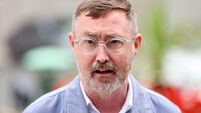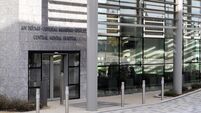'I feel very privileged': 79-year-old becomes first person in Ireland to get Covid-19 vaccine
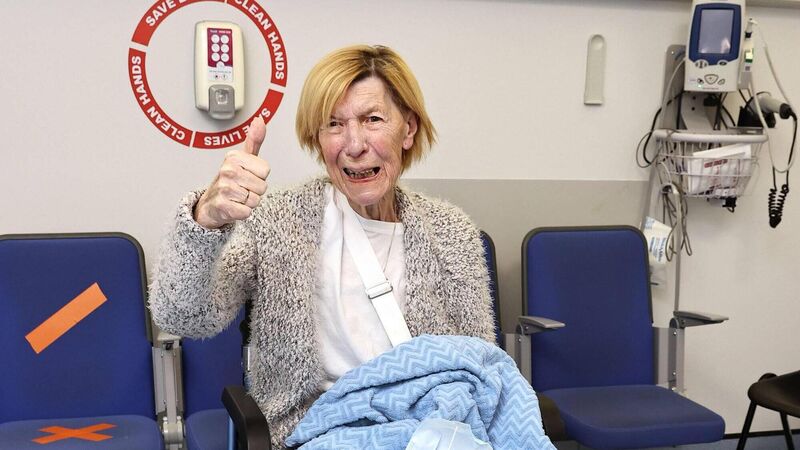
Ms Lynch said: "I feel very privileged to be the first person in Ireland to receive the vaccine." Picture: Marc O'Sullivan
A 79-year-old Dublin woman has become the first person in Ireland to be vaccinated against Covid-19.
Grandmother of 10, Annie Lynch from the Liberties area of the city, was administered with the Pfizer/BioNTech vaccine at St James Hospital this afternoon.
Ms Lynch said: "I feel very privileged to be the first person in Ireland to receive the vaccine.
"Like everyone else I have been waiting for the vaccine and I really feel like there is a bit of hope there now. It’s brilliant that it’s here. Everything was explained very clearly to me beforehand."
Ms Lynch lives in Drimnagh in Dublin, was born in Christchurch and grew up in the Liberties.
Her husband, John sadly passed away in September. She has three children and ten grandchildren and is currently a resident in the Mercer’s Institute for Successful Ageing at St. James’s.
It was the first Pfizer-BioNTech Covid-19 jab to be administered at four hospitals across the country: St James’s and Beaumont Hospital in Dublin, Cork University Hospital and University Hospital Galway.
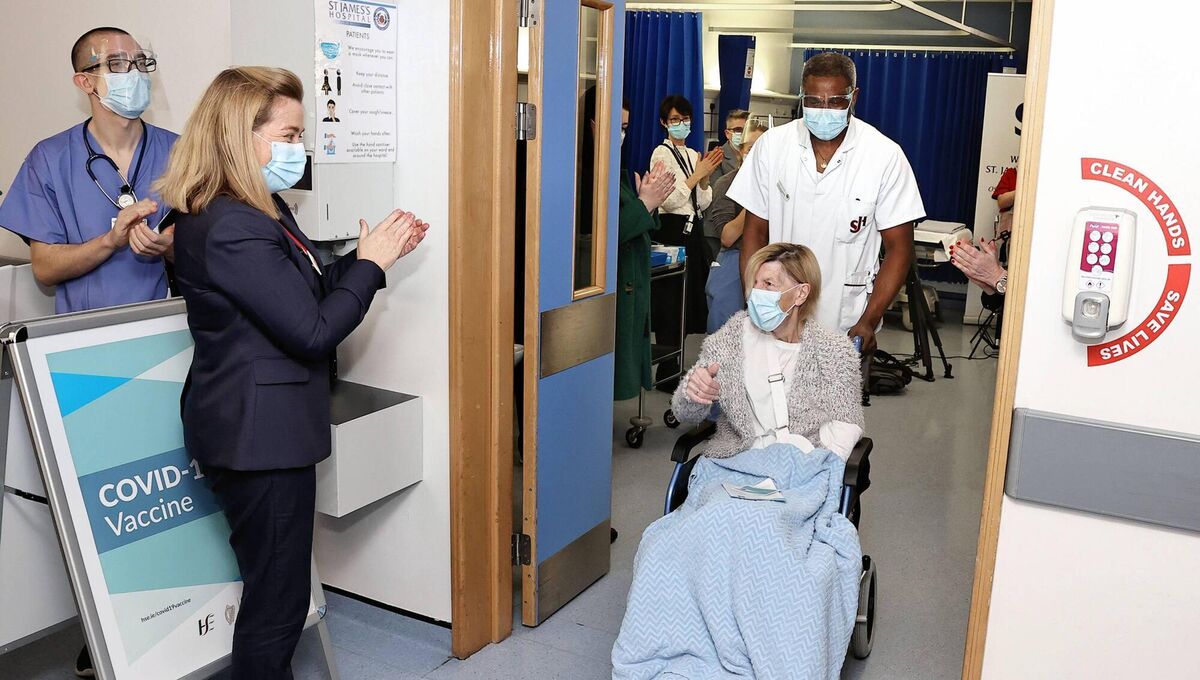
The first vaccination of a healthcare worker also took place today.
Bernie Waterhouse is Clinical Nurse Manager working in a designated Covid-19 ward in St James Hospital, received her jab today.
"I wanted to get the vaccine to protect myself, and the people I work with and care for every day, from Covid-19,” she said.
The CEO of the hospital said they are very proud to be the first in the country to offer the vaccine to staff and patients.
Mary Day said: "All of our colleagues, our patients and their families have endured a difficult year as a result of Covid.
"While we have more to do, the hope that today brings is really welcome, and I thank our vaccinators and all our staff whose hard work ensured we are up and running, protecting our team and our patients, from today.”
Health Minister Stephen Donnelly said that today is a "ray of light" after a trying year.
"It is testament to the work of the medical and scientific communities that we now have safe and effective vaccines to help to protect us against the devastating effects of Covid-19.
"Our healthcare workers have worked day and night to care for their patients throughout this pandemic. I would like to acknowledge their dedication and commitment, and thank them for the central role they will play as we now move into administering the vaccines.
"While vaccines will help us in the fight against this pandemic, Covid-19 is still a threat to health and to our health services, and we must do everything we can to slow its spread. Please continue to follow the public health guidance, mind yourselves and mind your loved ones."
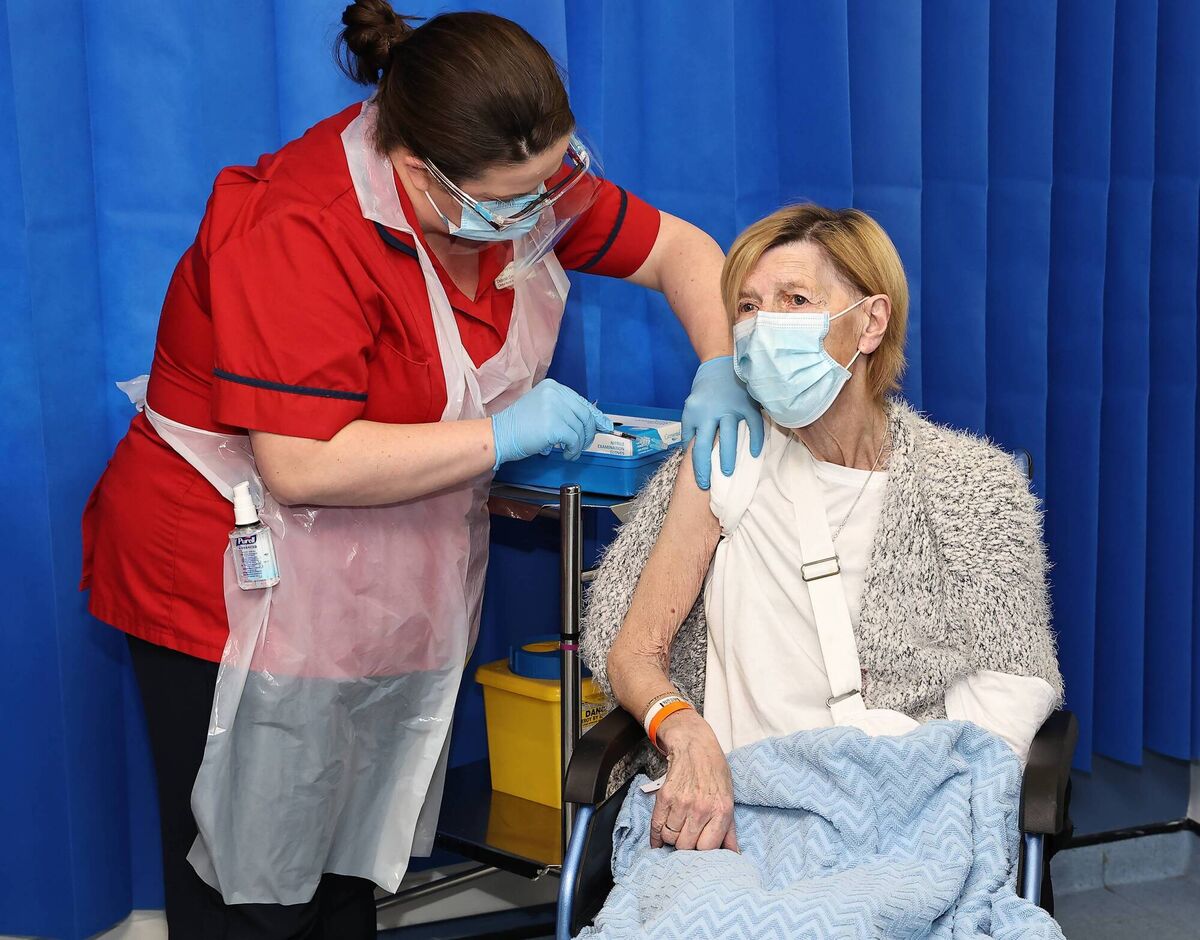
HSE chief Paul Reid said: "This vaccine has the power to protect people from Covid-19, and reduce the illness and deaths caused by this terrible virus.
"I am very proud to see the vaccinations commence today, safely, with thorough vaccinator training and patient centred communications at its heart.
"As we know, the vaccines will be delivered in stages - we’re starting in acute hospitals initially, and will move into long-term care facilities from next week, but this is a great start to an historic process."
Earlier, the head of the vaccine task force, Professor Brian MacCraith said that today was "a momentous day".
He said told RT Radio that "it is the beginning of a complex process, the beginning of the end of an awful period".
Prof MacCraith said he believes it is possible to have the vaccinations in nursing homes completed in February.
“It’s very appropriate that those who suffered the most from this awful pandemic will be the number one priority,” Professor MacCraith said.
“It’s very positive that we can predict that we will complete all vaccinations in nursing homes by the middle of February.
“That’s the level of ramp that will happen.”
Following that vaccination process, health authorities will begin to vaccinate those aged over 70.
Professor MacCraith said it’s impossible to be “absolutely precise” when the vaccination process will be completed in Ireland.
“In all our modelling we are looking at various authorisation and approval dates, looking at potential scales of arrival,” he added.
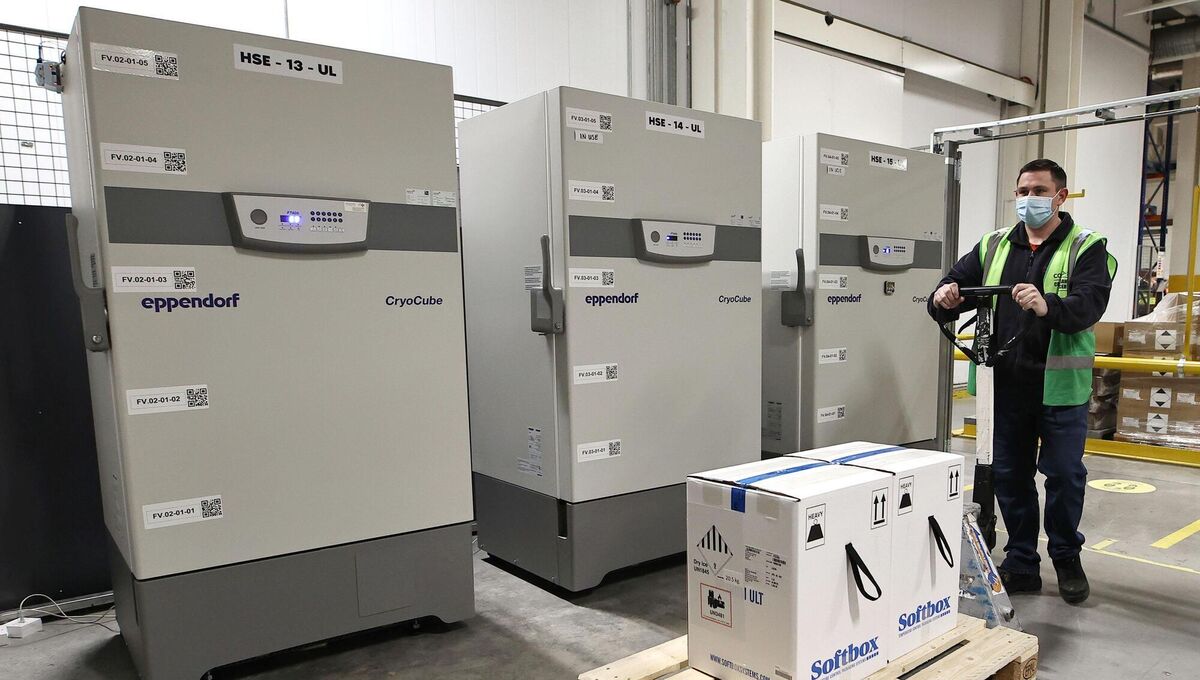
He said that in a best case scenario, anyone who wants to receive the vaccine will be able to do so by August.
He said that around 530,000 vaccines will arrive in Ireland a week at its peak.
Prof MacCraith added that quantities of the vaccine “will never be held back” and will be administered as quickly as they become available.
He explained that the reason half the doses that arrived in the country on December 26 had been held back was to ensure that they have sufficient quantities to administer the second dose.
This was being done as a precaution and once supply chains, manufacturing schedules and delivery dates have been confirmed “we will never hold back the vaccine” he said. It will be used as quickly as it becomes available.
There have been some difficulties around the supply of the vaccine in other countries which was the reason for the caution, he said.
A further supply of 40,000 doses is expected to arrive in Ireland today with the same quantity scheduled to arrive every week for the month of January and into February, he said.
“Because the second dose is so important, we are not leaving anything to chance.
“We want to get to a situation where we can use the 40,000 doses as soon as possible.”
Prof MacCraith said that once the AstraZeneca vaccine becomes available it will be “a game changer” because of the ease of use. “That will change things quite quickly.”
The issue of informed consent was being adhered to and patient risk information was also “being taken very seriously”, he said.
The task force has had very good discussions with Nursing Homes Ireland about the rollout of the vaccine and it was very appropriate that those who had suffered the most would be prioritised.
Negotiations were also ongoing with GPs and pharmacists as “trusted community voices”, he said.
All of the task force’s modelling was based on approval dates, manufacturing schedules and delivery schedules, added Prof MacCraith.
By August he expected that anyone who wanted the vaccine would have it. A recent poll had indicated that over 70 per cent of the population would be prepared to take the vaccine, with only one in ten saying that they would not.
A communications campaign to provide reassurance and address concerns would play an important role in the coming months, he said.



